Interview Proces
For most private practice positions, interviews take place in three stages:
- Meet and Greet
- Fact Check
- Money Talk
Stage One | The Meet and Greet
The meet and greet is an opportunity for the interviewer and interviewee to learn about each other. Discussions should take place surrounding position expectations, practice culture, spectrum of care, mentorship, and professional goals.
This stage may take place during a networking event, in-person interview, phone interview or externship.
Stage Two | Fact Check
The second stage is the working interview. It is an opportunity for both parties to determine whether or not the discussions from stage one match performance. As the potential new associate, pay close attention to the culture of the practice, support staff interactions, client engagement and spectrum of care provided. Take the time to gain the perspective of as many people as possible. If you are entering an internship or residency program, out-going interns or residents can offer valuable insight on the strengths and weaknesses of the program.
Stage Three | The Money Talk
Stage three may be a separate interview or it may directly follow the working interview. It is your opportunity to discuss salary and benefits, ask financial or practice performance questions, and assess the practice’s ability to meet your professional goals (i.e. can the practice afford you). Make sure you have, or are able to calculate:
- Average Doctor Revenue (ADR)
- Average Doctor Transaction (ADT)
- Active Clients per Full Time Veterinarian
- New Clients per Full Time Veterinarian
- Percent Booked
Standing out in an Interview
Interviewing is all about sharing professional goals, identifying mutual growth opportunities and building relationships. Here are a few tips for achieving those goals within the confines of an interview timeline.
Become Genuinely Interested in People
It’s really easy to focus a conversation around what is important to us. After all, this is what we know and sharing philosophies or experiences with others is a lot of fun. But if we keep the focus on us, the relationship stays very one-sided. We learn very little about the other person and deny them the fun of sharing their philosophies and experiences.
Instead of leading with what is important to you, find out what is important to the interviewer and show how you can help achieve the organization’s professional goals. Here are a few questions you can ask the interviewer to help flip the focus:
- Tell me about _____ Animal Clinic
- What are you most proud of at _____ Animal Clinic?
- Given the success of _____ Animal Clinic, what do you see as the biggest opportunities for the practice?
- What led you to become a practice owner (or manager)? What do you enjoy most about veterinary medicine? What has led you to decide to hire another associate?
- What traits (medical and characteristics) will make someone successful at ____ Animal Hospital
Smile
A smile can go a long way in an interview. 48% of adults believe a smile is the most memorable feature after they meet someone for the first time compared to the spoken word which was only ranked by 25% of respondents as the most memorable feature. A genuine smile can score even more points with a potential employer because almost 3/4 of them say they are looking for a “positive attitude” in a candidate.
Remember Names
Speaking to someone by name expresses a genuine interest in that person. It is important for the relationship you are building with the interviewer as well as the relationship you are building with every member of the practice team.
For a lot of people remembering names, can be a huge challenge. If you struggle with this, here are a few tips to help overcome that hurdle.
- When introduced to someone, repeat his or her name back. Then continue to use that person’s name in conversation.
- If it’s an unusual name, ask about it origin.
- Ask for a business card.
- Write the name down three times. Not only will it help your memory, but taking notes during a meeting can be a positive selling point for many employers.
- Associate the name with a bizarre mental image (weird images are easier to remember
6. Repeat the person’s name as you leave.
Listen to Understand, Not to Respond
Many of us focus our attention on listening only long enough to formulate a response. Consciously or subconsciously, the objective of the conversation becomes what can I contribute rather than what can I learn. Whether you are in a personal setting or a professional one, when you focus on what can I learn, your contributions become more valuable and meaningful.
Being a good listener is an art. And, like all great artists, mastering one’s craft takes practice. Dust off that notebook and sharpen your listening skills.
Take Good Notes| Taking good notes in a meeting activity shifts the focus from providing information to obtaining it. In larger team meetings, good notes provide a reference for progress, responsibilities and action items moving forward. When taking notes, stick to a notebook or computer. While it is possible to use a smartphone, using a phone shares a message of disengagement rather than attentiveness.
Focus | Focus on what the other person is saying as well as what they are not saying. Pay attention to body language, emotion around certain topics or tasks, goals, successes and inefficiencies. These are the barriers you will need to overcome, the outcome expectations and the acceptable paths to get there. The better you become at listening, the better you will hear what others want but cannot explicitly state. As Henry Ford said, “If I asked people what they wanted, they would have said a faster horse.”
Don’t Interrupt | Interrupting is irritating, disruptive and shares with the speaker a lack of interest or respect. Interrupting with a disagreement can change the dynamic of the entire conversation by putting the speaker on the defensive. There is nothing wrong with challenging someone else’s statements but timing is critical. When you find a topic you feel needs more clarity or warrants further discussion, write down your question(s) or concern(s) so that you don’t forget them. When the speaker is finished, look back to your notes and open the discussion.
Encourage Others To Share Their Story | An important role of a good listener is encouraging conversation. Ask open ended questions and embrace silence (even when it feels awkward). Silence allows the other person time to formulate thoughts or overcome emotions surrounding a difficult subject.
Body Language | The right body language can encourage a conversation while the wrong body language can completely shut it down. To keep the discussion flowing, make direct eye contact, nod, smile and maintain an open body posture. Avoid appearing distracted, impatient or disinterested.
Check Your Understanding | Checking in during a conversation ensures a mutual understanding of the items being discussed and reassures the speaker that you have heard the message they intended to share. Ask questions to clarify points and confirm your understanding of the message.
Find Common Ground
Shared interests, values and goals are the building blocks of relationships. In an interview, they provide a bonding opportunity between future colleagues, add inspiration to the conversation and are an assessment of fit with the practice’s culture. Common ground can be found through professional ambitions, hobbies, network connections or shared home towns. Consider asking some of the following questions during your interview:
People love to share what they are passionate about and gain recognition for their accomplishments. At the end of the interview, make sure to thank the interviewer(s) for their time and the opportunity to meet their practice. If you were particularly impressed by an aspect of the practice (culture, staff, client education, medical care provided), let them know!
|
|
Building Winning Interview Skills | Common Mistakes Common Mistakes |
Mistake No. 1 | Poor Body Language
72% of Employers
Poor body language included failure to make eye contact (72%) or smile (42%), bad posture (38%) or a weak handshake (28%).
Interviews can be stressful and nerve-wracking. For many people that probably won’t go completely away but practicing can definitely help. Prepare for your interview in advance and practice sharing your experiences or answers to common questions. Gain actual interview experience by apply to a job that is unrelated to your field (e.g. coffee shop, administrative position). Seeking opportunities to be interviewed or to interview others will help boost your confidence and keep your skills sharp.
Mistake No. 2 | Appearing Uninterested
62% of Employers
Body language, tone and how you respond to a question shares a lot of information about your interest in the position or practice. Be attentive during the interview, sit up straight and make eye contact with your interviewer. Take your time responding to questions, give thoughtful answers that convey passion or energy, and whenever possible, include specific examples.
Mistake No. 3 | Dressing Inappropriately
60% of Employers
Deciding on the appropriate attire can be a challenge in the veterinary profession. Do you show up in professional attire or ready to work out on a farm call? Before the interview try to find out if this is a formal interview, working interview or both. If you’re unsure, arrive in professional attire with everything you need to get to work in the car.
Mistake No. 4 | Answering a Cell Phone or Texting
60% of Employers
This one probably seems like common sense, but it’s really easy to forget to turn your phone on silent when your mind is focused on the interview. As soon as you arrive, turn your phone off and put it away. Even though it may be tempting to use your phone while waiting, don’t risk your chances of getting the job because you couldn’t resist checking your emails. Instead, use any down time to get to know the staff or take in the client perspective sitting in the waiting room. Once the interview officially begins, give it all of your focus.
Mistake No. 5 | Talking Negatively About a Current or Past Employer
58% of Employers
Interview answers can walk a fine line between showing your appreciation for current/past employers and asserting that the new job opportunity is preferable. Stay positive during your interview and concentrate on how your past roles have prepared you for the current role. If you did have a negative experience, keep your answer short and end on a positive, such as what you learned from it.
Mistake No. 6 | Not Providing Specific Examples
38% of Employers
Specific examples provide future employers with a better understanding of your ability and fit within the practice. Medical and surgical skills will be demonstrated in a working interview but leadership, entrepreneurship (or intrepreneurship), business growth, and client bonding skills usually require specific examples to accurately depict your ability. Whenever possible quantify your experiences. For example:
- How much did you grow membership in an organization?
- How many new clients did you bring to the practice through an outreach event?
- If you implemented a new program or business solution to a club, practice or organization, how specifically did it impact the organization and what challenges did you have to overcome?
|
|
|
Building Winning Interview Skills | Interview Styles Interview Styles Traditional A traditional interview style focuses on what you have done rather than how you approach problems. The resume is often used as a springboard to extrapolate on experiences, discuss strength and weaknesses, and learn more about professional interests. Situational and Behavioral Situational and behavioral interviews focus on a candidate’s ability to solve problems. With a situational approach, candidates are presented with hypothetical situations and asked what they would do, while behavioral interviews discuss past experiences and assess what the candidate actually did. When asked to recall specific past experiences, provide brief background information on the goal you were trying to accomplish, the challenge(s) you were facing and the resources or opportunities available to you. Describe the specific actions you performed to reach your goal and the results of those actions. Try to quantify the outcome whenever possible. For example:
|
Common Interview Questions
It may not be possible to anticipate every question a potential employer might ask, but reflecting on some of the common ones helps organize your thoughts and clearly describe your experiences. Here are a few interviewer favorites to reflect on:
- Tell me about yourself
- What makes you unique?
- How will you contribute to your future employer?
- What do you hope to gain from this position?
- Questions surrounding industry related topics such as the veterinary feed directive or fairness to pet owners act.
- What organizations are you active in and why? What do you enjoy doing in your free time?







Responses
@courtney_post I really appreciate all of these helpful tips in this article, particularly your recommendation on asking the interviewer the goals of the practice and what role you (the interviewee) can play to help achieve the clinics goals and your own professional goals. Thank you so much for this insight!
Its a sure fast way to discover whether or not you and the clinic will be aligned in years to come!
@courtney_post I really appreciated the “finding common ground” section as someone who struggles with small talk because these few questions seem simple enough to remember to ask during your interview. Thanks for sharing!
@courtney_post I really appreciated the step-by-step breakdown of the interview process. We don’t usually get the opportunity to learn about the process in advance and I feel that the knowledge you provided allows for a great way to be prepared in the future. I also found the “common mistakes” section to be very informative. We often forget all of the little things that people pick up on during interviews and conversations.